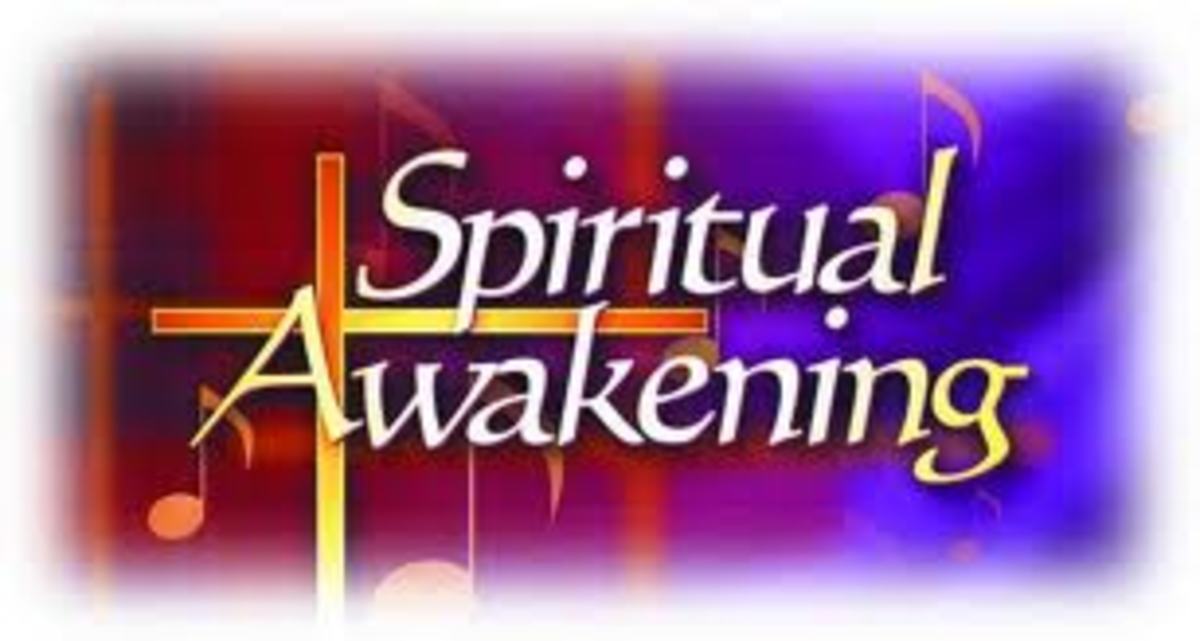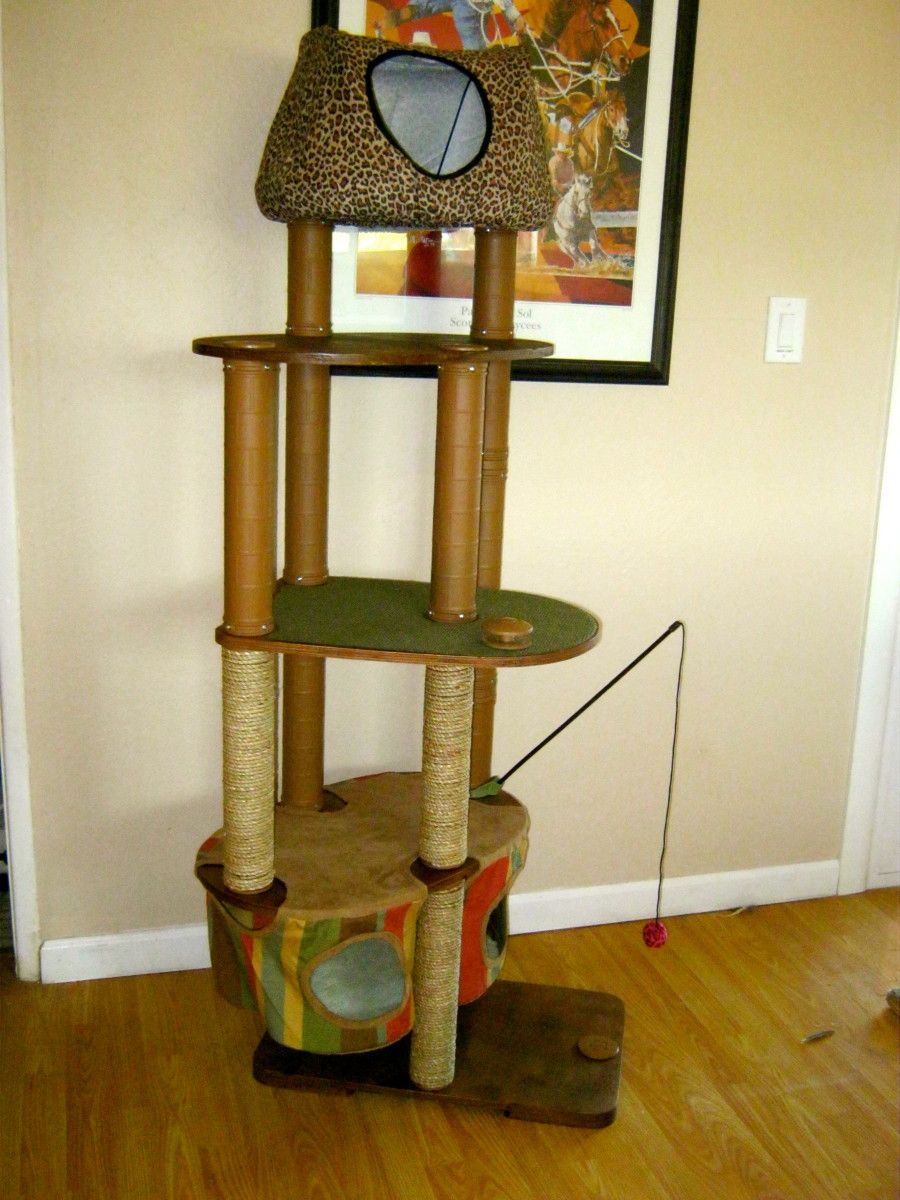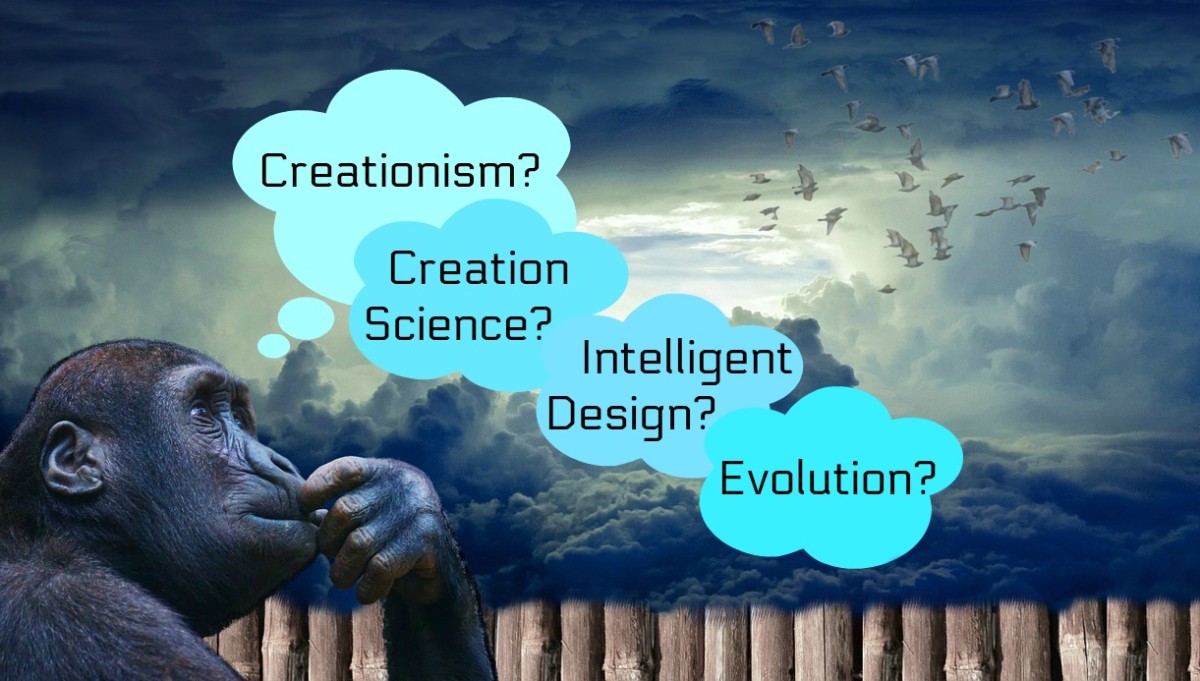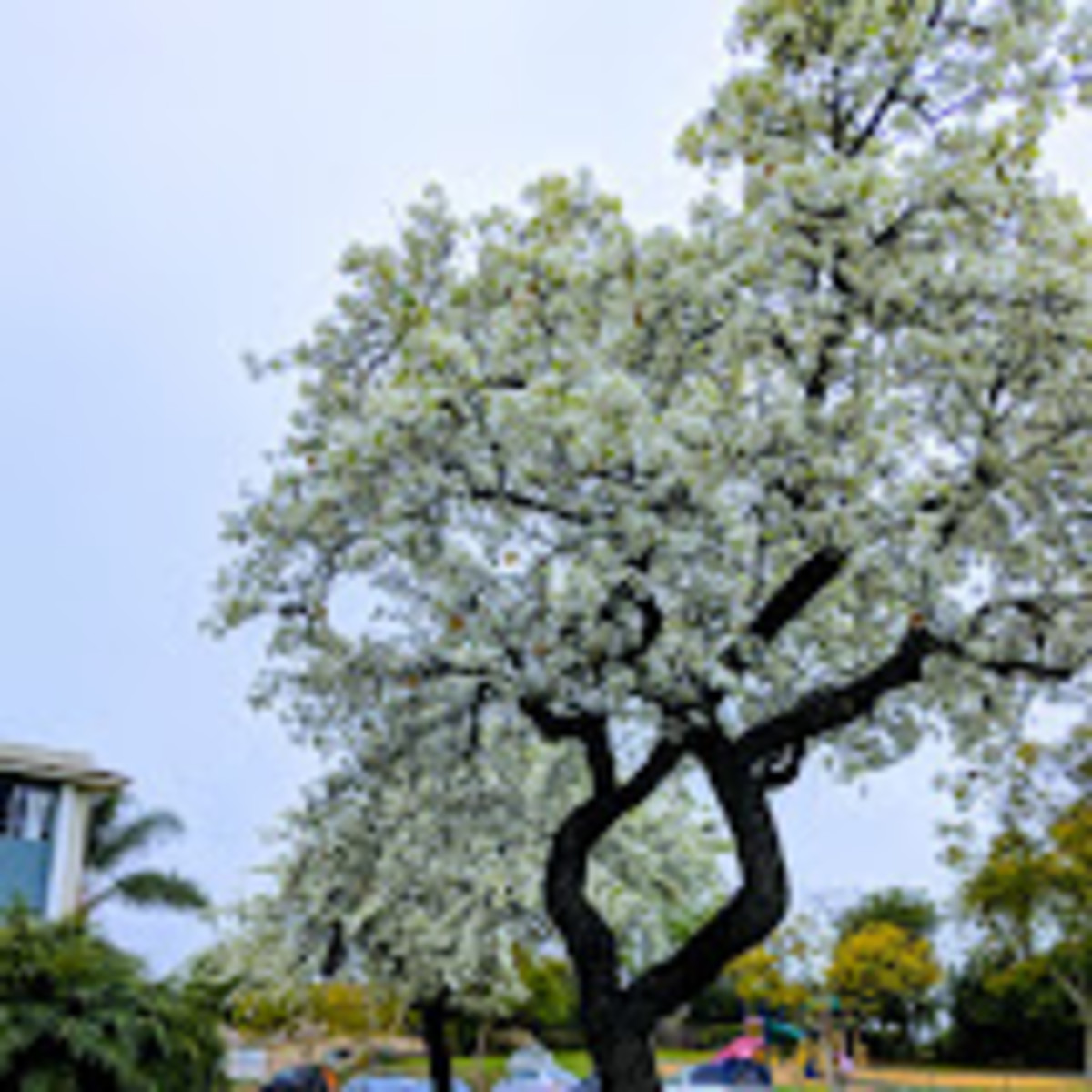Believe in Ourselves
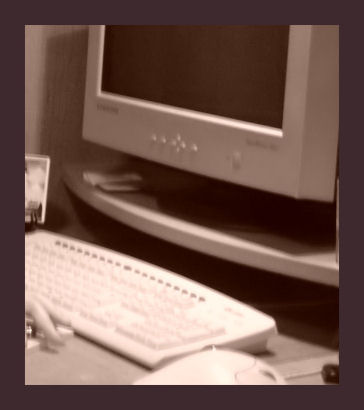
Sharing my husband's take on beliefs
I have my beliefs and my husband has his beliefs. I enjoy going to Church in a structured way. He does not. Together we agree on some things. Sometimes we just agree to disagree and not be disagreeable! The following are a few of his thoughts and questions:
"To all those who are looking to have the answers given to them, you can try and read this but there are no answers here. This writing is intended for those with questions, doubts, or troubles, thinking of the answers and need a new way to look at things or ways of thinking. Good luck finding your answers.
There are many forms of religion, faith and worship, as well as shapes that God and gods can take. We have all wondered what it is we are supposed to believe in because there are too many choices sometimes and they are all at odds with each other. What do you believe in, God or in yourself? If God is in everything, then he is in you. Why not believe in yourself? Those of us with good parents are taught from an early age that we can do anything we set our minds to, those with better parents are taught to believe in ourselves and be who we want to be.
Why do we say God is in everything? Many religions teach that but then tell you that only they can speak for God and interpret the meaning. If you believe in them, they will teach you how to live properly. Didn’t your parents teach you that? What about society? We are born into this world with our body already knowing how to live, it breathes, it tells us when it needs nourishment, it tells us to avoid physical pain. What we are not born with is the ability on how to act, which is what needs to be learned from our parents, our friends, and society.
Our bodies need nourishment, but what is food to it? We learn what to eat and what not to eat from the ones older and wiser than us so we can continue to survive. We can also imitate what we see others doing and learn from that as well. From all these lessons on just plain survival, we can learn other things as well, things that are not necessary to survival but make life more pleasant. We need water to live but fresh, cold water on a hot day is much more refreshing than warm water.
As we learn, we grow into our own individuality, what we like and dislike. Many of the foods you ate as a child are now some of your favorite things because they may remind you of simpler, even happier times, but what you like may not be what someone else likes. These differences are what make us individuals and they can be a source of strength or a source of strife. As individuals, we all have our strengths and weaknesses, things that are easy for us to do and things that are difficult. If you find someone who is different than you, you should try to recognize their strength or weakness and find ways to accomplish things you couldn’t without them.
Too many see differences and want to change them, thinking if we are all alike we can do more together when all you are really doing is limiting the possibilities. The simplest example is a man and a woman, raised in this society they are very different. But when they work together, they can create a home and a family, something that is difficult at best when working alone. All this leads to, we are who we are and no one can or should try to change that. We should look for others that we can work with that help us accomplish new things instead of looking to change others to accomplish the same things. There are many things that we should try to be the same at, but those are things that we use as a society to survive, rules, law and morals. We are not born with the things society needs to survive, only what the body needs to survive. But for a society to survive, it needs those rules in order to keep it from dying. So societies can be looked at as individuals as well. Each society has wants and needs, strengths and weaknesses, we should be looking for ways to work together to accomplish even more, rather than to fight with each other to conquer or assimilate that society.
And that brings us to a product of society, religion. Most religions claim all others are false, they convert or crucify, induct or shun, when in reality all religions are closely related with only small differences and should be trying to cooperate to accomplish even more. But what religion always fails to accomplish is to open an individuals mind to all the possibilities. They can teach you faith or belief, but it has to be their faith or belief. But everyone is an individual with different thoughts, different ideas and different needs. We should all be taught how to believe and have faith in who we are before we can believe and have faith in others.
One of the worst controversial beliefs of most religions is creationism versus evolution. One of the newer forms of this controversy is intelligent design which basically states that life started and evolved in certain ways because of intelligent intervention. I suggest a new argument, intelligent design versus intelligent observation. In physics and anthropology, one of the biggest conundrums is that the act of observing can change that which is being observed. There are many theories and postulates that cover this but the easiest to understand it in anthropology. A scientist observing an aboriginal tribe must interact with them to get some understanding of their culture by asking questions about what they are. But by asking questions, the observer is also imparting information about themselves by the questions they ask."

If a tree falls in the woods...
"So by the act of us observing ourselves, our neighbors, our world, our universe and our beliefs, we could possibly be changing them without knowing. If a tree falls in the forest and no one is there to hear it, does it make a sound? Better still, if a tree falls in the forest and a deaf person is there to see it, does it make a sound? The answer of course is yes but the outcome is different both times. All by itself, the falling tree makes a sound, but the observer will here it differently depending upon where the observer is located to the falling tree. How will the sound travel? Will the sound wave bounce off other objects, reverberate off rocks or be softened by the forest? A deaf person of course will not be able to hear the tree fall, but he can see it and feel the vibrations through the air and the ground. And of course, depending on where he is placed to the tree depends on how strong the vibrations are and how much he will observe. The point is, we all observe things from our own perspective and place our own values on them and interpret those values in our own way. So did the tree fall on its own or did an intelligent being knock it over? For our own observations about the fact that a noise was made, it doesn’t matter.
But man, being the curious type, will ask why did the tree fall over? And that is where we run into the trouble of was it by design or was it random?As an observer, will you be close enough to see if termites ate away at the wood or did it succumb to disease? Since it’s a forest, would you have noticed a tree cutter sawing the tree?
What we observe does not affect the event, but it changes how we perceive the effects of the event, the sound and its quality, the vibrations and its intensity, and most importantly which only man can do, why did the tree fall and what results will come from it? The tree still fell and still made a sound, but only man asks why. The world is here, there is life on this world, knowing why doesn’t change that. But just by asking why changes us and what we believe about the world around us. So the tree falling is a random act but with someone there to observe it, we can assign values and make assumptions and create formulae about the event. Is the creation of life random? Is how it evolved random?
If life was created for a purpose, does that mean we no longer have free will or was life created so we would have free will? Would the answer to any of these questions change you and the fact that you are alive?
So let’s ask what came before life? The most current and popular theory is the big bang which simply put, in the beginning there was a singularity containing all the mass and energy of the universe. Science will tell you that as you approach a black hole or the speed of light, time slows down, so you can imagine that with all the energy and mass of a complete universe in one singularity that there is no such thing as time. I won’t even begin to describe the mathematics involved as I don’t understand it myself, but here’s a thought.
Light is both an energy wave and a physical particle as observed in how it interacts with other energy and particles. But what if light is energy and a function of time? They say light cannot escape a black hole because of its massive gravity because light is a particle and therefore has mass. But, because of a black hole’s massive gravity, time slows down as you approach it, thus light cannot travel literally at light speed, which is a function of time, and no longer appears as light energy but some other form energy that can escape the gravity of a black hole. But I digress. Many science fiction stories create beings of pure energy, cohesive and intelligent and capable of interacting in the universe. While inventive, I suppose an energy being would still need particles of mass to interact physically within the universe.
Thus it’s a small leap from there that the complete energy and mass of an entire universe could create or just be an intelligent life, one that is outside of time because in a singularity, there is no time. In our imaginations, we create our own worlds and universes populated with characters and creatures of all kinds. Our imagination comes from our brain which they say runs on electrical impulses. The closest thing we have created to that is the computer, which is capable of trillions of calculations per second. They even propose to create computers using light instead of electrons to increase the speed at which calculations can be accomplished.
An intelligent life form outside of time, created from energy and mass, with nothing to do but think, could conceive of everything. What if, instead of God giving man free will, what if this being gave the universe free will? And, after it had conceived of everything, it ended itself to create the universe as we know it, expanding and changing and creating new things. It is no longer guiding or changing things, but a part of everything that is old and new. We are a part of God and God is a part of us, we were giving free will in a universe of free choices to do and be and create that which is new to it. We should not be bound by the old ideas that limit us but look for new ideas that expand and create other ideas."
So, with all that said, I still love his mind and I cannot argue with some of the points he brought up.in his musings. I cannot answer his questions because I still have some of my own.



